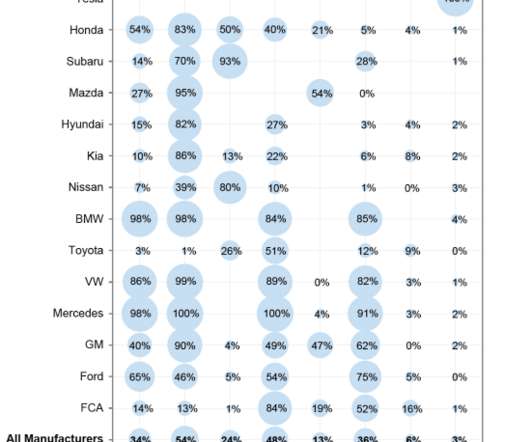EIA: US energy-related CO2 emissions down 1.7% in 2016; carbon intensity of economy down 3.1%; transportation emissions up
Green Car Congress
OCTOBER 6, 2017
decline in energy-related CO2, according to the latest report from the US Energy Information Administration (EIA). Since the late 1990s, the transportation sector has produced the most CO2 emissions. Transportation increase led by gasoline consumption. Motor gasoline accounted for 56.0% along with a 1.4%


















Let's personalize your content